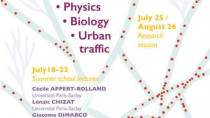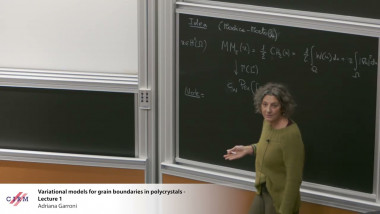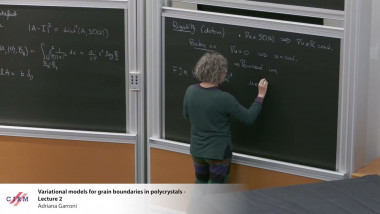Numerical methods and uncertainty quantification for kinetic equations - lecture2
In this course, we will consider the development and the analysis of numerical methods for kinetic partial differential equations. Kinetic equations represent a way of describing the time evolution of a system consisting of a large number of particles. Due to the high number of dimensions and their intrinsic physical properties, the construction of numerical methods represents a challenge and requires a careful balance between accuracy and computational complexity. In the first part, we will review the basic numerical techniques for dealing with such equations, including the case of semi-Lagrangian methods, discrete-velocity models and spectral methods. In the second part, we give an overview of the current state of the art of numerical methods for kinetic equations. This covers the derivation of fast algorithms, the notion of asymptotic-preserving methods and the construction of hybrid schemes. Since, in all models a degree of uncertainty is implicitly embedded which can be due to the lack of knowledge about the microscopic interaction details, incomplete informations on the initial state or at the boundaries, a last part will be dedicated to an overview of numerical methods to deal with the quantification of the uncertainties in kinetic equations. Applications of the models and the numerical methods to different fields ranging from physics to biology and social sciences will be discussed as well.




















![[1247] Dérivation de l'équation de Boltzmann en temps long à partir d'une dynamique de sphères dures](/media/cache/video_light/uploads/video/SeminaireBourbaki.png)




